National Welfare Schemes Under Threat Due to Fund Allocation Issues
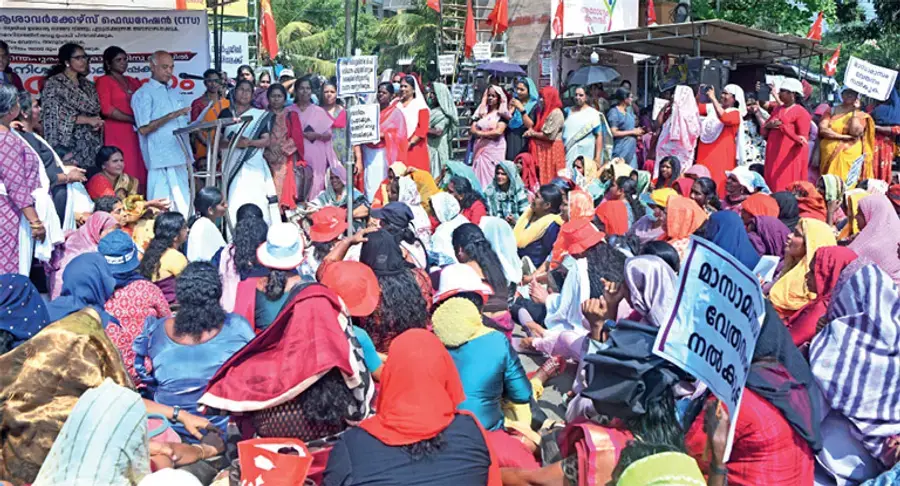
Asha Workers Federation (CITU) staging a protest outside the Directorate of Health, voicing their demands

Anjali Ganga
Published on Feb 15, 2025, 06:35 PM | 5 min read
National welfare programs such as the National Rural Health Mission (NRHM), Integrated Child Development Services (ICDS), and the Mid-Day Meal scheme are facing severe challenges due to insufficient funding from the BJP -led NDA central government. Workers under these schemes, referred to as "Honorary Workers' are paid inadequately despite the overwhelming workload they face.
At the heart of these central government sponsored programs are rural women, who serve as the backbone of these initiatives at the grassroots level. For many of these women, their income solely depends on the payments from these schemes. However, they often experience delays of up to six months in receiving their due payments from the central government, which places them in significant financial distress. Members of Parliament from opposition, especially from left parties have raised the issue of low wages for these workers in the Lok Sabha, only to be told that these workers are honorary volunteers contributing to the betterment of society and, as such, are not entitled to salaries akin to regular workers.
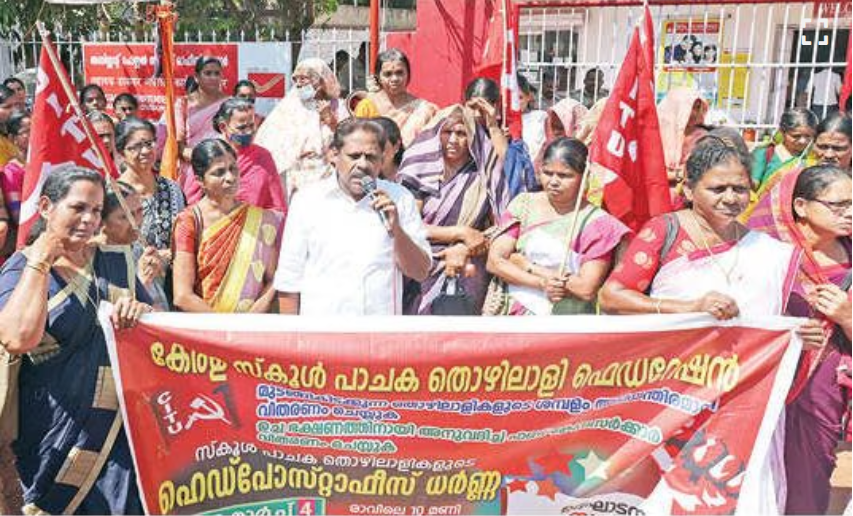
Mid- Day Meal Workers' Struggles
The Mid- Day Meal program, which employs approximately 2.5 million Cook -Cum -Helpers (CCH), is heavily reliant on women, with 88.3% of the workforce being women, many of whom are single or widowed. Despite their crucial role, their salaries have remained unchanged for the past 15 years. The scheme, hailed as the world's largest school feeding programme, is estimated to cover almost 12 crore children in over 11 lakh schools. Currently, they receive a meagre honorarium of rupees 1,000 per month, which is below the minimum wage standard. However, this is only paid for 10 months of the year, as schools close during the summer holidays for two months.
The honorarium is shared between the central and state governments in a 60:40 ratio. The amount received by workers varies depending on the willingness of state governments to provide additional funding. In states like Kerala and Tamil Nadu, the honorarium amounts to around rupees 12,000, with rupees 11,400 of that provided solely by the state government. In contrast, workers in many other states and union territories receive less than rupees 2,000 per month. Andhra Pradesh, Punjab, Telangana, Uttarakhand only pay rupees 3500. Bihar rupees 1500, and UP rupees1000 including the centre fund.
Furthermore, since these workers are treated as bonded workers by the centre they do not have access to benefits such as pensions, social security, or health insurance, making them vulnerable to exploitation and neglect. The central government's authoritarian policies not only undermine the rights of these workers but also pave the way for corporate interests to thrive at the expense of the rural labour force.
Anganwadi Workers' Deteriorating Conditions
Anganwadi workers, who are essential to India's rural education, are similarly underpaid and overburdened. Despite the increasing rates of child malnutrition and anemia among women, the central government’s claims of progress in tackling these issues remain unsubstantiated.
Out of the 13.95 lakh Anganwadi centers in India, 11.82 lakh are staffed by workers and helpers. In primary Anganwadis, workers receive a paltry rupees 4,500 per month, while those in mini Anganwadis are paid only rupees 3,500. Anganwadi helpers are paid just rupees 2,250 per month. Notably, only 60% of this funding is provided by the central government, with the remainder covered by state governments.
Kerala stands out as an exception, with workers who have served for over 10 years earning rupees 8,500 per month, while those with fewer years of service receive rupees 8,000. Helpers with more than 10 years of experience in Kerala earn rupees 6,750, while those with less experience receive rupees 6,250. These amounts are paid entirely from state funds, which highlights Kerala’s commitment to supporting its rural workforce. Only Tamilnadu, Telangana, Haryana pays extra monetary benefits to Anganwadi workers.
The NITI Aayog’s 2020 evaluation of the ICDS program only recommended performance -based increments for workers and helpers, but this does not address the urgent need for standardisation of salaries across states. Additionally, necessary repairs for Anganwadi centers are often reimbursed by the central government, but these reimbursements can take a long time to process. Workers also frequently cover the costs of meetings and training sessions out of their own pockets.
ASHA Workers’ Struggles
ASHA (Accredited Social Health Activist) workers play a critical role in ensuring the well-being of mothers and children in rural India. Their contribution is vital for the smooth operation of the rural healthcare system in many states. However, ASHA workers often face an overwhelming workload and are compensated poorly for their efforts. The central government provides only rupees 3,000 per month for ASHA workers, while Kerala offers an additional rupees 7,000 to these workers. Despite this, Kerala remains one of the few states to provide a decent salary to ASHA workers, underscoring the disparity in pay between different regions. Only Telangana (rupees 6750), Karnataka (rupees 5000), UP (rupees 1500), Gujarat(rupees 2500) pay additional salary to these workers.
The current state of welfare workers, including those in the Mid -Day Meal, Anganwadi, and ASHA programs, is a stark reflection of the neglect faced by grassroots labour in rural India. The inadequate financial support and lack of recognition for these workers’ contributions not only undermine their rights but also impede progress in addressing critical social and health issues.
It is essential that the central government reassesses its policies and allocates sufficient funding to these essential programs, ensuring that workers are fairly compensated for their crucial role in the nation’s development. Central governments not providing necessary funds for their employment are actually putting the state government at financial risk.
However, despite state governments increasing their share of the honorarium, the central government remains unwilling to raise its contribution. As a result, state governments are left in a difficult position, having to find the necessary



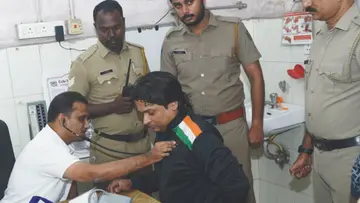
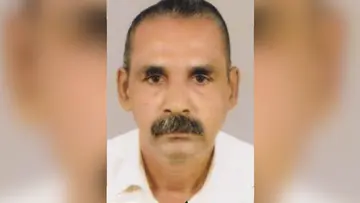
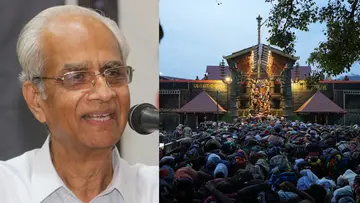
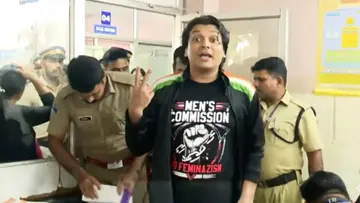



0 comments